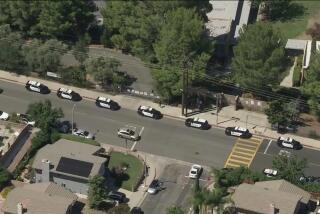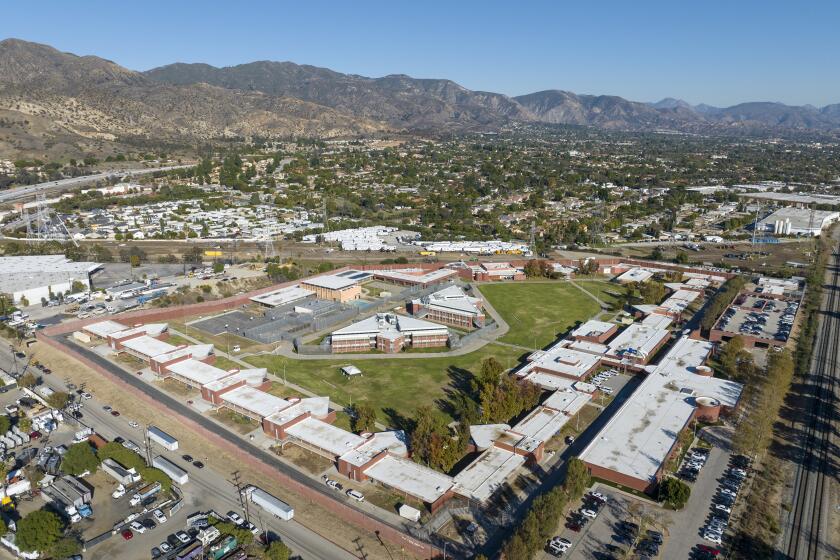Fighting Drugs in the Schools
- Share via
The police undercover operation that netted eight students last week on suspicion of selling small amounts of marijuana and cocaine at the Huntington Beach High School District’s four campuses leaves lots of people with mixed emotions. And understandably so.
The idea of police officers skulking about a high school campus, no matter how legitimate the operation, is a distressing one. As one American Civil Liberties Union attorney noted, the police presence causes students to stop trusting each other. And that poisons the campus atmosphere.
But the sale of drugs to students at school also poisons the campus.
There’s no disagreement over the fact that drugs are, indeed, very prevalent in Orange County schools, perhaps more than on other campuses across the nation. According to the latest available statistics, more than 40% of all 11th-graders in the county have smoked marijuana, and nearly 20% have used cocaine. That survey is 4 years old and its figures are considered somewhat conservative and very much out of date.
Each case must be considered on its individual merits. The results of the latest sting operation in Huntington Beach seemed modest for all the effort. It is particularly troubling when the people who supply the drugs brought onto campus for sale, usually non-student adults, are not apprehended. The use of police undercover officers in drug busts at school is legal. The courts have consistently upheld them as long as police remain careful not to cross the thin line that would constitute a violation of a student’s rights, or entrapment. In this case, as occurred two years ago when a similar operation netted 23 suspects at Edison High School, the district asked police to come onto the campus out of concern for the widespread use of narcotics by students. Police responded, as they should.
It would be a mistake, however, if district administrators, or anyone else, think undercover police operations will solve the drug problem in the schools. They won’t. What could help is school officials working with the community and with parents in realistic anti-drug education programs.
Unfortunately, the community’s substance abuse programs for youths are generally weak. The last county grand jury, in its final report last June, noted the high level of illegal drug use by youths and reported that programs to combat that use were fragmented and lacked coordination and adequate funding.
Parents, too, must start playing a more active part in anti-drug use programs. They must also be better role models. Until they start saying “no” themselves, they cannot expect their children to decline.
More to Read
Sign up for Essential California
The most important California stories and recommendations in your inbox every morning.
You may occasionally receive promotional content from the Los Angeles Times.













